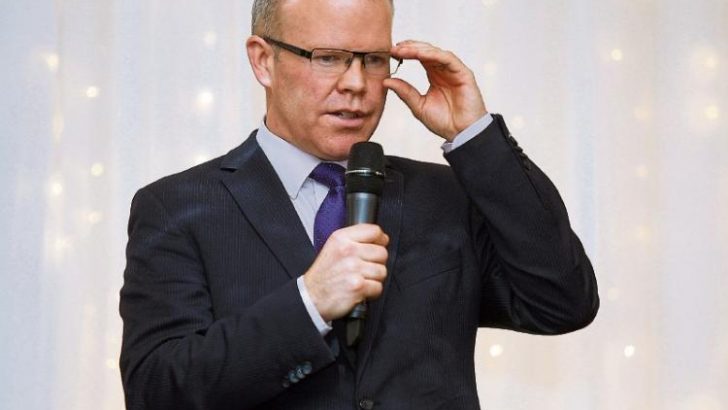Repeal activists are treating this election as a chance to finish off pro-life politics – to save it, pro-lifers need to canvass and vote for Aontú, writes Ben Conroy
It’s important for the pro-life movement to have a presence in political life. In this election, Aontú surviving as a political entity will help that project immensely, and its obliteration will set it back a generation. Given that pro-lifers have very few resources, the best way to use those resources (chiefly, votes, money, and volunteering time) in this particularly election is to use them to help Aontú.
This is true even if you’re not generally an Aontú supporter and think that the future of pro-life politics lies mostly within the mainstream parties. Aontú holding or gaining seats, and reaching the 2% threshold needed to receive State funding, will help, not hurt pro-life politicians in all the parties. And Aontú’s defeat would rightly be seen as a rejection of pro-life politics.
Why is this? Well, let’s start with some polling from the last general election that shocked me. Very few people vote with abortion as their number one or even number two issue. It seems to be about 2 to 4%. That’s pro-choicers and pro-lifers combined. There may have been a lot more ‘no’ voters to repeal, but most of them don’t care that much about the issue.
Incentive
What’s the upshot of that? The upshot is that most politicians in the mainstream parties, even pro-life ones, have every incentive not to actually do anything for the pro-life movement. There just aren’t that many votes in it.
What can we do about that? Create leverage and make our votes count for more by having a party with a pro-life platform in Leinster House. Think about the Green Party’s influence when compared to their relatively small vote share (never more than 5% in a general election). By having an actual party with environmental issues as a central plank, the green movement achieved far more politically than they would have just by having isolated TDs in other parties. And those isolated TDs, in turn, were incentivised by the existence of the Greens to take green issues seriously.
Similarly, the presence of a pro-life party in the Dáil will put pressure on the mainstream parties. Fianna Fáil, for instance, will actually have a party that is more pro-life than them in the Dáil. This will increase the leverage of pro-life TDs in both Fianna Fáil and Fine Gael. They will be able to say “look, pro-lifers do have somewhere else to go, we can’t take their votes for granted”. Thus, even if in the long run you want to devote your energy to supporting pro-lifers in the mainstream parties, that will be made easier, not harder, by the existence of a strong and competitive party with an actual pro-life platform.
In this election, the only such pro-life party with a chance at taking any seats is Aontú. That party doing well would be a huge shot in the arm for the pro-life movement. What’s more, the nature of the Irish electoral funding system and party funding makes supporting them this time around by far the best use of the votes of committed pro-lifers.
Here’s why: in Irish elections, any party that gets more than 2% of the vote in the last general election receives State funding of over €200,000 a year. But below that a party gets nothing. Aontú has a strong grassroots operation with a lot of political veterans and good organisers involved.
Very few people vote with abortion as their number one or even number two issue. It seems to be about 2 to 4%”
Getting that money would set them up for the future to be able to run more competitive candidates, do more national organising, and put more pressure on the mainstream parties in more constituencies in the long run, thus empowering the pro-life voices within those parties.
This funding is based only on shares of the national first-preference vote. This, plus the nature of the Irish electoral system means that it will almost always be the right move to give that vote to an Aontú candidate, even if they have no hope of getting elected.
Let’s say a pro-life Fine Gael candidate is in a fight for the last seat and the Aontú candidate isn’t. If you vote 1 Aontú and 2 for the pro-life Fine Gaeler, that first preference will be counted towards Aontú’s national vote total rather than Fine Gael’s. One more vote for Fine Gael’s national share won’t advance the pro-life movement’s goals at all – one more vote for Aontú gets it closer to that crucial 2% national threshold. And if the Aontú candidate is eliminated your vote will still transfer. On the other hand, splitting the pro-life first-preference vote between mainstream candidates, various tiny parties, and independents will likely stop any pro-life grouping from reaching the 2% threshold for funding.
I’ve made the case for the benefits of Aontú doing well. The other side of the coin to consider is what it will be like if they do badly. The major parties and especially Sinn Féin will be going all out to prevent Peadar Tóibín being elected, just as they did with Lucinda Creighton.
We can create leverage and make our votes count for more by having a party with a pro-life platform in Leinster House”
Mr Tóibín took a risky and high-profile stand in favour of universal human rights. He was probably the single most prominent politician arguing against repeal.
If he were to lose his seat, or Aontú was to fail to reach 2% nationally, it will be seen as a rejection of pro-life politics in this country by the electorate.
Sometimes elections are complicated. And sometimes they are very simple. If you believe, as I do, that abortion is the most important human rights issue of our generation, then in this election there is every reason to vote, donate to, and canvass for Aontú.


 Ben Conroy
Ben Conroy Aontú leader Peadar Tóibín
Aontú leader Peadar Tóibín 